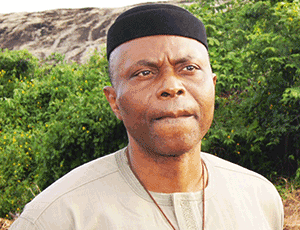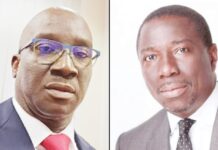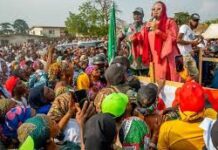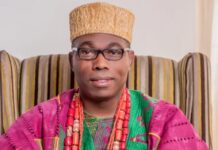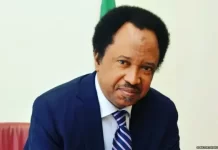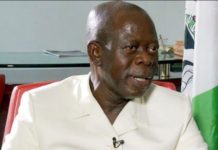Professor FEMI MIMIKO, Vice Chancellor of Adekunle Ajasin University, Akungba (AAUA), Akoko in Ondo State, was a state delegate to the national conference. He talks to Special Correspondent, JULIUS ALABI, on some of the issues discussed at the confab and succession debate in the university among other issues.
Going to the confab
Olusegun MimikoIn the run-up to March 17 when the conference formally opened, I had two trepidations about my participation. First, I asked myself whether it would be worth the while to leave the university for four months. I queried myself whether the promise of the confab, which many had predicted would be a waste of time anyway, would be adequate compensation for leaving the university for that long, especially at a time I should be putting finishing touches to my programmes, considering that it was at the tail end of my five-year tenure.
Perhaps, the most important of the questions was, would the Adekunle Ajasin University, Akungba (AAUA) system function in my absence, and for that long? Significantly, I chose to resolve all the issues and controversies on positive note.
So, to Abuja we went, and to the glory of God, we did what we needed to do. I think, overall and with all sense of modesty, we discharged our responsibility most creditably and we feel proud of the profundity of the outcome of conference deliberations.
Experience at the confab
We surely shall have a more auspicious time to discuss the take-homes from the national conference. It, therefore, suffices to just highlight some of the more profound recommendations which include the status of local government areas evicted from the constitution, now in the view of states, state police, zonal commission, provision for merger by states, boundary adjustment, solid minerals now in concurrent list, state creation and its significance to minority rights in the North, port, railways, etc ownership and management, unbundling of the Independent National Electoral Commission (INEC) and possibility of cleaner elections and independent candidature.
Governance at AAUA
That takes me to the issues of the state of the campus. I am aware of the widespread tendency to denominate our achievement these past five years in terms of physical infrastructural development. This is no mean an achievement, no doubt, considering the general paucity of fund, the limited capacity of many of Nigeria’s infrastructural development firms, and, of course, our gargantuan infrastructural challenge when we came on board early 2010.
Yet, for me, our greatest achievement is not in infrastructure; rather, it is in the area of institutionalisation of procedures, the robustness of our academic and detached-academic programmes, and our capacity-building and research accomplishments. These constitute the framework for effective university governance, and ultimately the defining elements of a good university. It is this that makes it possible for our university to run seamlessly for four months in the absence of the VC.
Let me use this opportunity to appreciate the DVC, who was effectively the Acting VC, deans, directors, HoDs and HoUs, as well as all staff for working together and ensuring that our university continued to wax stronger.
Absence at the university for four months
I am delighted that all our students are going about their activities smoothly. It is good to note that our university is running well despite the gale of instability in virtually all campuses around us. I, however, wasn’t too pleased with the events of May 2014 when some students tried to use the unfortunate accident and death of a student in town to create an unacceptable situation on campus and elsewhere in town.
It is of utmost importance that students, especially their leaders, should appreciate the critical place of leadership and the choices we make in life, how they define our future for good or bad. For me, the core leadership value must be borne in mind and held up by all leaders at all times. These are vision, character, capacity and courage.
At all times, leaders must consider the wider implications of all their actions and what all of these mean for their constituents. As we have articulated times without number, your mission should be how to contribute to the stability of your university. It was not for nothing that AAUA was rated the Best State University in Nigeria for 2013.
State of affairs on campus
It is very conducive, but we would seek ways of working with the host community to intervene in the electricity situation in town. But more importantly, we would ensure the university, which is the community over which we have jurisdiction, continues to remain conducive to learning by students and we would keep upgrading our infrastructure.
We are also planning to deploy a few more tricycles to ease movement around the campus. We are also going to explore the possibility of constructing a number of bus/relaxation centres.
We are recruiting more medical doctors at the Health Centre to reduce waiting time for staff and students. On security, we would be collaborating with the police and other relevant services to improve on the security situation generally.
Insinuations on tenure extension
I cannot pretend that I am not aware of issues bordering on succession now that my tenure is coming to an end. I sincerely appreciate those who are rooting for extension of my tenure, out of the conviction that one had done well these past few years. But I say unequivocally that there are fundamental reasons an extension of my tenure under any guise is not acceptable to me at all.
In the first instance, there is the need to protect the legal framework for appointment and tenure of VCs as laid out in our laws. Second, we must seek to nurture institutions rather than individuals. Third, for those who are persuaded that I should stay on because I had done well, the truth is that they wouldn’t have had an idea of my own modest capacity if I hadn’t been allowed to serve as VC because somebody had to be kept on for doing a good job. Fourth, there is no end to the work of a university, indeed of any organisation. So, even if they give me 10 years, there would always be something still asking to be done at the end of the 10th year.
Fifth, what I had was a five-year plan for the university which I sold to the Council/Senate Selection Committee at the interview session it had with all the candidates in late 2009. That is the programme I have tried to implement assiduously since January 4, 2010 when I resumed as VC. I did not and still do not have any plan for a sixth or seventh year. Sixth, and perhaps most importantly, I just want to move on.
My appeal to everyone on this project of extension is to put a stop to it.

